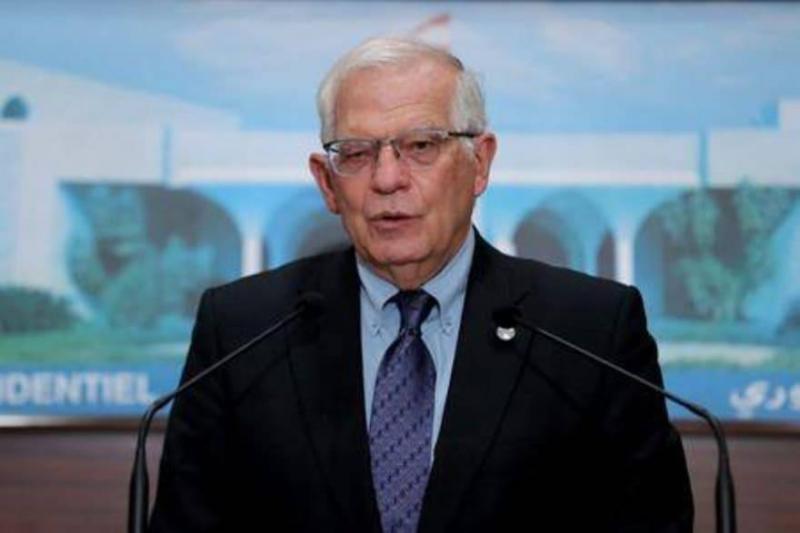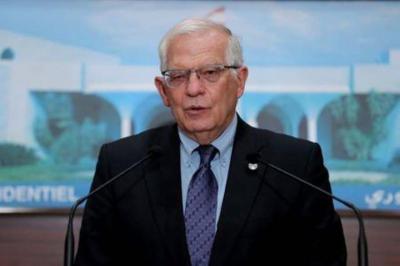Josep Borrell, the EU foreign policy chief, told Lebanon's leaders on Saturday that they bear responsibility for the country's political and economic crisis, and that some may face sanctions if they continue to obstruct efforts to form a new government and implement reforms. After what he described as a "frank communication" with Lebanese President Michel Aoun, Borrell conveyed a stern message that the country is on the brink of financial collapse and politicians cannot afford to waste more time.
He told reporters after talks with Aoun, "The crisis that Lebanon is facing is an internally driven crisis. It is a crisis imposed on itself." He added, "It is not a crisis coming from outside or from external factors. It's a crisis from within, a crisis of your own making."
The Lebanese currency has lost 90% of its value. Over half of the population lives in poverty and is suffering from high inflation, power outages, and shortages of fuel and food. The crisis has been exacerbated by political stalemate, with disputes between the designated Prime Minister Saad Hariri and Aoun ongoing for months regarding the formation of a new government capable of implementing reforms that could unlock much-needed external aid.
Borrell stated, "We are ready to provide assistance... but if there are more obstacles in front of the solutions to the multidimensional current crisis in the country, we will have to consider other courses of action as suggested by some member states." He added, "The EU Council is exploring other options including targeted sanctions."
### Potential Sanctions
The potential sanctions come as part of efforts by some EU countries, led by France, to increase pressure on politicians in Lebanon after nearly a year of stagnation. A EU diplomatic memo obtained by Reuters indicated that the criteria for the upcoming sanctions will likely include corruption, obstruction of government formation efforts, financial mismanagement, and human rights violations.
The bloc has not yet decided on the approach it will take. Borrell will present a report to foreign ministers on Monday following his talks in Beirut, where he is also scheduled to meet with Hariri, the Speaker of Parliament, and the caretaker Prime Minister.
Paris has stated that it has already taken steps to restrict the entry of certain Lebanese officials whom it sees as obstructing efforts to address the crisis, which is rooted in decades of governmental corruption and debt, although it has not named anyone specifically.
While politicians squabble, the funds of the Banque du Liban (the central bank) continue to drain to support a $6 billion annual subsidy program for fuel and food, which ministers say Lebanon can no longer afford. Foreign currency reserves have halved in less than two years, and the central bank urged the caretaker government on Wednesday to approve a plan to rationalize subsidies and target those most in need.
Borrell emphasized the need for the country to form a new government, agree on a reform program, and reach an agreement to secure a loan from the International Monetary Fund. Once this agreement is reached, the EU would be prepared to consider providing "significant financial amounts" in the form of loans and assistance. He stated, "Lebanon needs an agreement with the IMF and there is no time to waste... You are on the brink of financial collapse."




